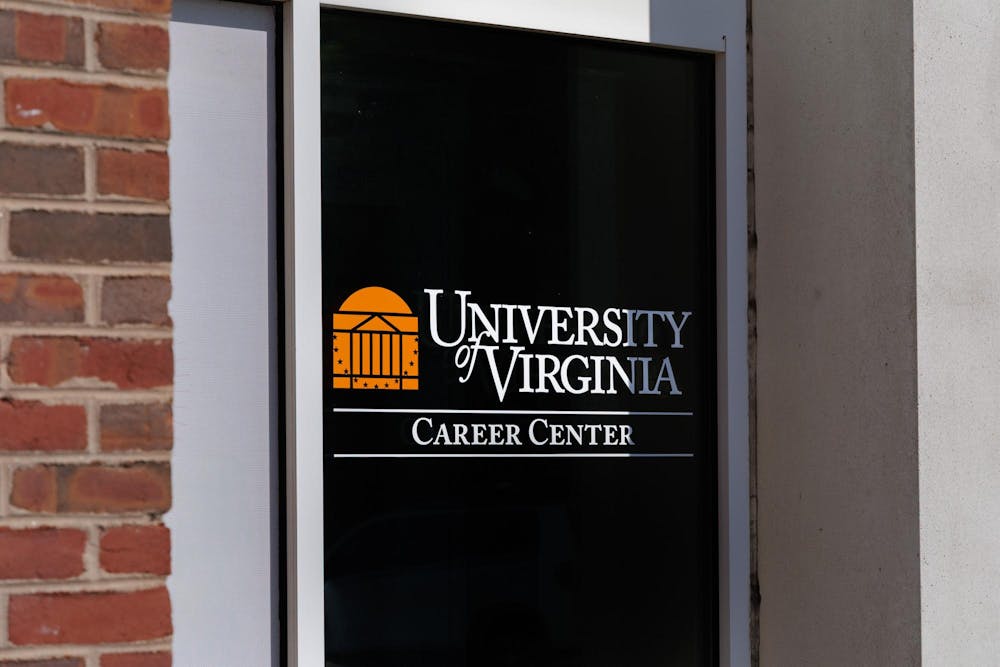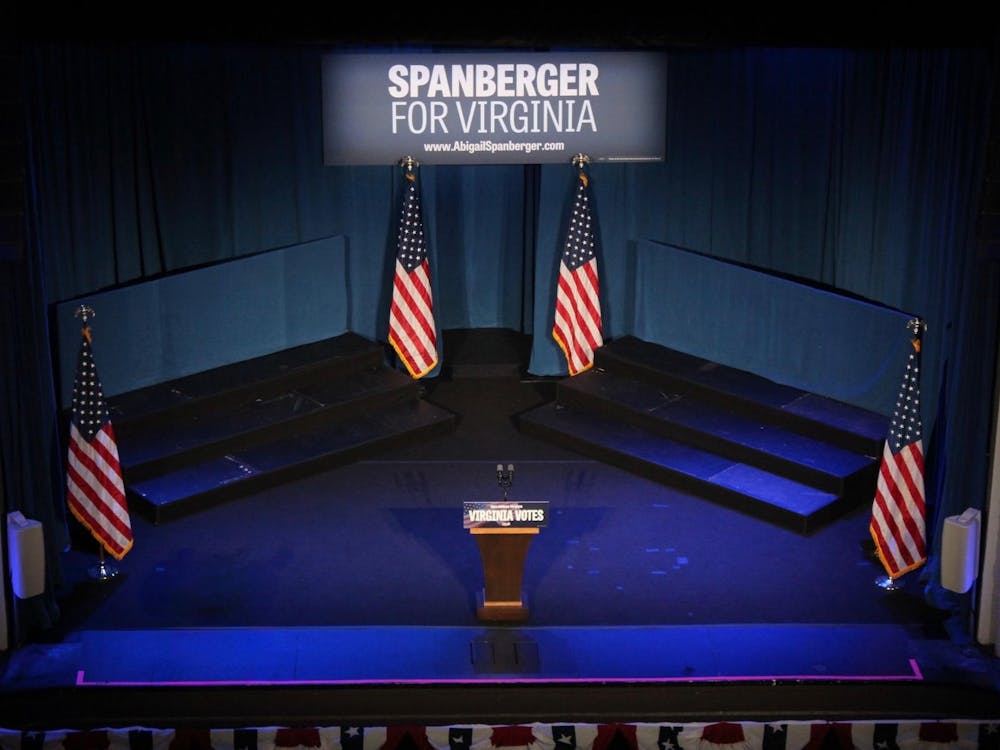As fourth-years’ time at the University comes to a close, some students are looking ahead and planning their future careers. Through support from mentors, alumni connections and Career Center resources, many fourth-years have endured the job application process and landed positions at law firms, investment banks and even abroad. However, uncertainties in the job market may inhibit a smooth job search process and career.
The United States is currently facing an increasingly uncertain economic future, with J.P. Morgan Research raising the possibility of a recession occurring in 2025 to 60 percent. Advance estimates from the first quarter of 2025 by the Bureau of Economic Analysis show a -0.3 percent decrease in Real Gross Domestic Product, compared to a 2.4 percent increase in the fourth quarter of 2024. Unemployment has remained around 4 percent, neither decreasing nor increasing.
Assistant professor of Economics Emma Harrington said that young, college-educated people may have difficulties finding work in an economy experiencing stress.
“The economy hasn't really seen huge upticks in unemployment yet … but I do think specifically when you're thinking about college graduates trying to find their first job, the economy is already seeing some evidence that it's getting harder for that group specifically.”
Many students find the Career Center to be a valuable tool during the job search and application process. According to a statement to The Cavalier Daily from Nicole Hall, senior associate vice president for student affairs and dean of students, the Career Center is a support system for students looking for work post-graduation. This support comes in many forms, such as through career advising appointments, career fairs, resume review, interview preparation and access to networking resources.
Hall stepped into the role of senior associate vice president for student affairs and dean of students March 24. She started at the University in 2023 as associate vice president for career and professional development.
Graduate Data Science student James Siegener said that the University’s Fall Data Science and Analytics Night, an annual career fair hosted by the Career Center, played a large role in landing the job he was offered in December with Fannie Mae — a government-sponsored finance company who buys mortgages from lenders and sells them as bundled securities to investors to keep the housing market stable.
“I applied to Fannie Mae because I talked with them at the [Fall Data Science and Analytics Night],” Siegener said. “I had no idea who they were and what they did, like at all. I just had a nice chat with a recruiter, and she sent me a link to apply and I did.”
After graduation, Siegener will work in Washington as part of Fannie Mae’s modeling and analytics program. He noted that he utilized the Career Center’s staff to solidify his resume and prepare for the interview process.
Fourth-year College student Annabelle Claypoole similarly found the Career Center to be a helpful resource throughout her job search and interview process. Claypoole accepted an offer in the fall to work at Sullivan & Cromwell, a corporate law firm in New York.
Claypoole primarily used the Career Center to prepare for the interview process by participating in mock interviews.
“I was able to make an appointment with the Career Center and schedule a mock interview and literally do the exact same questions I was probably going to be asked,” Claypoole said. “They gave me such good, detailed feedback and really picked apart my answers, but in a very constructive way.”
Another resource available to students is the Office of Citizen Scholar Development, which supports current students and alumni in finding undergraduate research and fellowship opportunities with the goal of furthering personal and professional development. Students receive assistance in exploring opportunities and in applying to specific programs.
As broadly described by director of the Office Andrus Ashoo, fellowships are nationally or internationally competitive programs in which University students and alumni can pursue their development. The Fulbright Program is an example of a fellowship opportunity.
“We're helping students to both get accurate information and to discern fit, because we think there are fellowships for any student,” Ashoo said. “It's just about figuring out which one or which ones are the best fit.”
Fourth-year Batten student Aliza Diop plans to teach English in either Europe or Africa after graduating, and has received an offer to teach in Spain through the North American Language and Culture Assistants Program, an educational outreach program between the United States and Spain. Throughout her job search, Diop said she relied greatly upon the Office as well as alumni networks. While she said the application process was not very stressful, she attributed this to beginning her applications in a timely manner.
“I think the main thing was just starting everything on time … Fulbright is open in the summer, because it takes a really long time to apply,” Diop said. “The main thing was making sure I had all the documents they needed and getting letters of [recommendation]. But it wasn't that stressful of a process. It was more like time management.”
While applying to teach English in Benin through the Fulbright Program — a government-sponsored international educational and cultural exchange program — Diop said she worked extensively with the Office to receive application feedback.
Fulbright Program decision notifications have been delayed, according to Ashoo, due to federal government funding freezes. Because of the delay, graduating students have faced difficulty in deciding whether or not to accept other job offers while they wait for Fulbright decisions.
“We've had many more students who have been offered other jobs or other opportunities and are considering, ‘Do I accept this thing?’ or ‘How can I accept this job and approach a conversation with my future employer about the possibility of accepting a Fulbright [award] if I'm offered it later?’” Ashoo said.
Beyond Career Center resources, students also utilized connections with mentors and alumni to find employment. Claypoole said she had several mentors that helped her during the job search process. Specifically, mentors from her previous work as a legal assistant and from her involvement in the University’s Virginia Mock Trial.
“The mentorships that I got from my clubs and internships at U.Va. were also really helpful for me,” Claypoole said. “Especially guiding the job search process and knowing what I really valued in a workplace.”
Fourth-year College student Devin Rappe similarly attributed part of his success in finding a job to his mentor and Commerce Prof. David Smith.
Post-graduation, Rappe will work at Evercore, an investment bank in New York, for which he received an offer in August. Within Evercore, Rappe will be working in a restructuring group whose role is to assist businesses in debt which might file for bankruptcy.
Rappe said that Smith introduced him to the head of recruiting for Evercore’s restructuring group, who ended up being one of Rappe’s interviewers, assisting him in the interviewing process.
In addition to receiving support from the Office, Diop found speaking to University alumni who have participated in the program helpful during the application process, specifically for NALCAP and TAPIF.
“A lot of people in the French department tend to do TAPIF, and U.Va. has good relations with them,” Diop said. “So I was just reaching out to some alumni, sending some messages back and forth.”
Even with assistance from mentors, alumni networks and University resources, several factors may complicate the post-graduation job search process. One of these factors is the current hiring freeze of federal civilian employees which President Donald Trump ordered in a presidential memorandum Jan. 20. Beyond the hiring freeze’s direct impact on job opportunities, Harrington also noted that the increase in tariffs has a similar yet indirect impact on the job market.
“The tariffs and the uncertainty around the persistence of those tariffs could have reasonably far-reaching impacts [on the job market],” Harrington said. “Like you could imagine Amazon might be a little bit more worried about hiring a lot of people right now, and it's very possible that tariffs are going to increase the prices of the goods they're selling.”
Harrington also noted factors outside of the current administration that may make it harder for graduates to find work, one of these being the increase in the use of generative artificial intelligence.
“Some companies may be less excited about hiring young software engineers where they could have the older software engineers just be much more productive with the aid of generative AI,” Harrington said.
For those in the post-graduation job search or application process, Hall advises to not confine oneself to a narrow range of opportunities, but instead cast a wide net.
“Look broadly — the first job you take is never the last one,” Hall said in her statement. “It is really a gateway to growing personally, helping you explore and more importantly setting the foundation for skills you will use throughout your career.”







